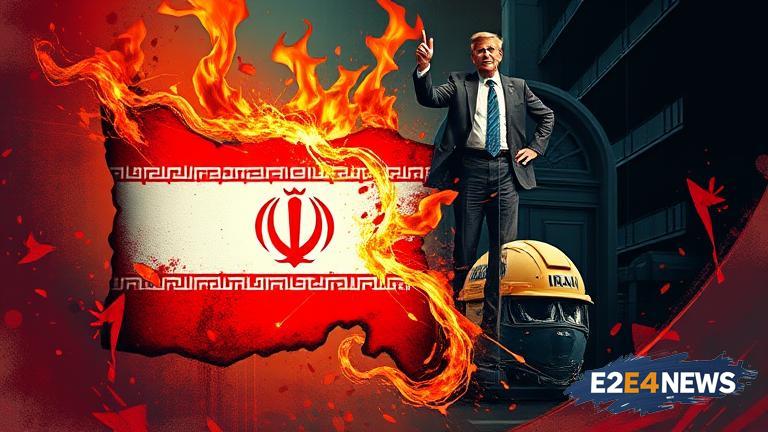The United States has taken a significant step in its efforts to exert pressure on Iran, announcing a new set of comprehensive sanctions aimed at further limiting the country’s economic capabilities. This move is part of an ongoing strategy by the US to influence Iranian policy and behavior, particularly in relation to its nuclear program and regional activities. The sanctions, which target various sectors and individuals, are designed to restrict Iran’s access to international financial systems and markets, thereby hindering its ability to fund its military and nuclear ambitions. The US government believes that by imposing these sanctions, it can compel Iran to negotiate a new agreement that addresses its concerns more effectively than the previous Joint Comprehensive Plan of Action (JCPOA). The sanctions have been met with criticism from some quarters, with arguments that they could have unintended consequences, such as harming the Iranian people and potentially destabilizing the region. Despite these concerns, the US remains committed to its policy of maximum pressure, hoping that economic hardship will force Iran into concessions. The Iranian government has vowed to resist the sanctions and has called on other countries to defy the US measures, which it sees as illegal and unjustified. The situation has sparked a diplomatic standoff, with the US and its allies on one side and Iran and its supporters on the other. The impact of the sanctions is already being felt, with the Iranian economy experiencing significant challenges, including a substantial decline in the value of its currency and rising inflation. The US has also warned other countries against doing business with Iran, threatening to impose penalties on those who violate the sanctions. This has led to a decrease in international trade with Iran, further exacerbating its economic difficulties. The European Union, among others, has expressed opposition to the US sanctions, citing concerns about their legality and potential consequences for regional stability. Despite these challenges, the US is determined to see its strategy through, believing that the pressure will eventually force Iran to the negotiating table. The sanctions are not only aimed at Iran’s government but also at its military and paramilitary organizations, which the US accuses of supporting terrorism and destabilizing activities in the Middle East. The US has also imposed sanctions on individuals and entities accused of human rights abuses and corruption. The move has been welcomed by some of the US’s regional allies, who see it as a necessary step to counter Iranian influence and aggression. However, others have warned that the sanctions could backfire, leading to increased hostility and reducing the chances of a diplomatic resolution. The US has made it clear that it is willing to negotiate with Iran, but only if it agrees to meet certain conditions, including the dismantling of its nuclear program and an end to its support for militant groups. Iran, on the other hand, insists that it will not be intimidated by the sanctions and will continue to pursue its national interests, including the development of its nuclear energy program. The standoff between the US and Iran has significant implications for global security and the future of the Middle East, with the potential for miscalculation and conflict. As the situation continues to unfold, the international community is watching with bated breath, hoping for a peaceful resolution to the crisis. The US sanctions on Iran are a complex issue, with multiple layers and implications, and their impact will be closely monitored in the coming weeks and months. The world is waiting to see how Iran will respond to the sanctions and whether the US strategy will achieve its intended goals. The situation is fluid and dynamic, with new developments emerging daily, and it remains to be seen how the crisis will be resolved. The US and Iran are engaged in a high-stakes game of diplomacy and economic pressure, with the outcome hanging in the balance. The international community is urging both sides to exercise restraint and seek a peaceful resolution to the crisis, which has the potential to destabilize the entire region. The US sanctions on Iran are a critical issue, with far-reaching implications for global security, trade, and diplomacy. The world is watching as the situation unfolds, hoping for a peaceful and diplomatic resolution to the crisis.
